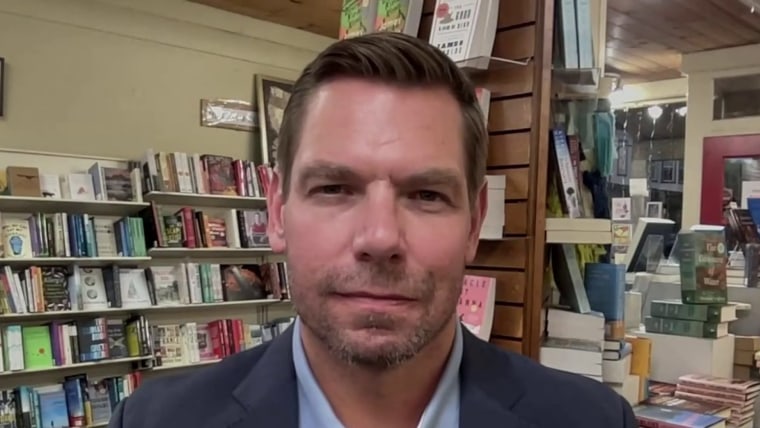Throughout his presidency, Donald Trump struggled to get along with then-Senate Majority Leader Mitch McConnell. The Republican president apparently expected the longtime Kentucky lawmaker to serve as his lackey in the upper chamber, and McConnell had a different vision of his role.
But it wasn’t until after Trump left the White House that his rhetoric took a dark turn. The former president wrote online, for example, that McConnell had “a DEATH WISH” for disagreeing with Trump’s legislative strategies. He told The New York Times on the record that he considered McConnell to be “a piece of s---.” The former president even targeted the GOP leader’s wife — a former member of Trump's cabinet — with racist taunts.
The hostility reached this level, not because of a vote the senator cast or a candidate he endorsed, but because of a speech McConnell delivered shortly after the end of Trump’s second impeachment trial. NBC News ran this report in February 2021:
Moments after voting to acquit Donald Trump, Senate Minority Leader Mitch McConnell gave a speech excoriating the former president for a “disgraceful dereliction of duty” and said he holds him responsible for “provoking” the Jan. 6 siege of the Capitol.
To be sure, McConnell joined most of his Republican colleagues in voting to acquit the former president. But there was a nuance to the GOP senator’s position: McConnell suggested that the proper response to Trump’s wrongdoing wasn’t political, but rather, it was legal.
“There is no question — none — that President Trump is practically and morally responsible for provoking the events of that day. No question about it,” the Senate Republican leader explained in his prepared remarks. “The people who stormed this building believed they were acting on the wishes and instructions of their president. And their having that belief was a foreseeable consequence of the growing crescendo of false statements, conspiracy theories, and reckless hyperbole which the defeated president kept shouting into the largest megaphone on planet Earth.
McConnell went on to say, “Sadly, many politicians sometimes make overheated comments or use metaphors that unhinged listeners might take literally. This was different. This was an intensifying crescendo of conspiracy theories, orchestrated by an outgoing president who seemed determined to either overturn the voters’ decision or else torch our institutions on the way out.”
Though the Kentucky senator didn’t explicitly call for Trump’s prosecution, it did not go unnoticed that his remarks added, “President Trump is still liable for everything he did while he was in office, as an ordinary citizen. ... He didn’t get away with anything yet — yet. We have a criminal justice system in this country. We have civil litigation. And former presidents are not immune from being accountable by either one.”
Broadly speaking, McConnell effectively made the case that Trump was guilty of the charges raised by the articles of impeachment, but because the former president was no longer in office at the time of the Senate trial, the remedy should be sought in the courts, not the Congress.
In other words, the GOP leader said there were avenues for holding Trump accountable — including the nation’s “criminal justice system.”
For all the talk in Republican circles about the illegitimacy of the Justice Department charging the former president for his alleged post-election crimes, the fact remains that the party’s Senate leader endorsed this approach in what was arguably the most important speech of his lengthy career.

